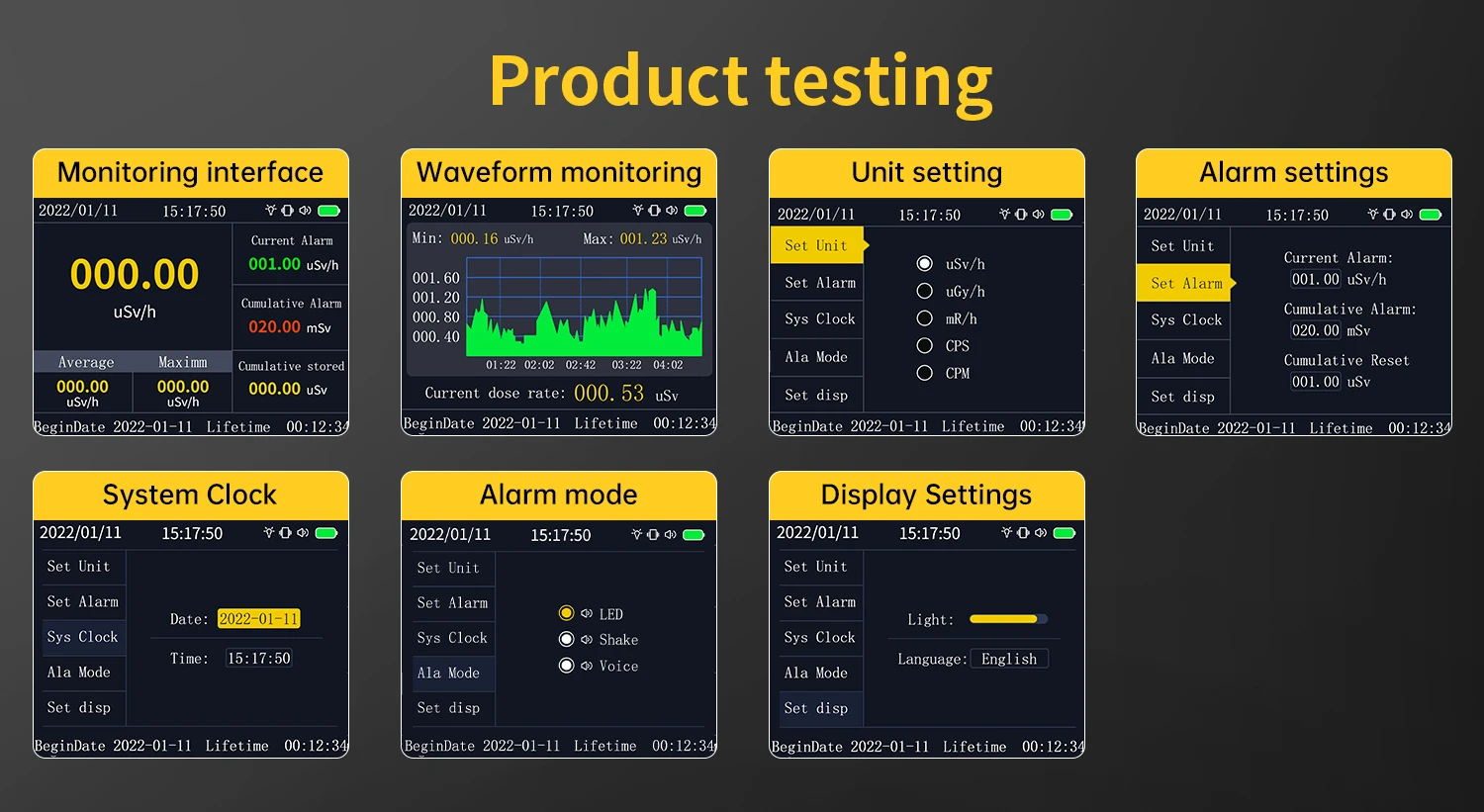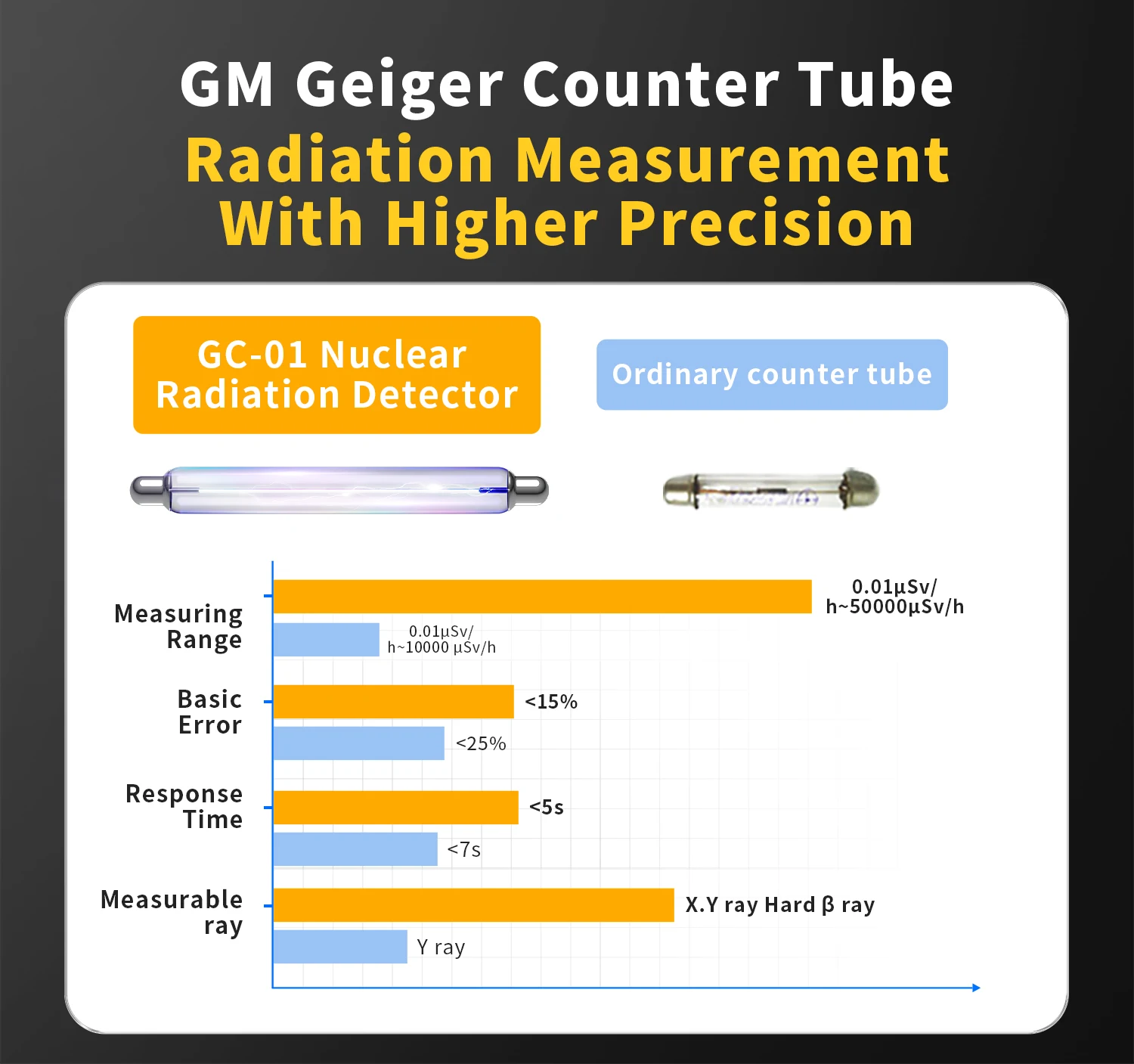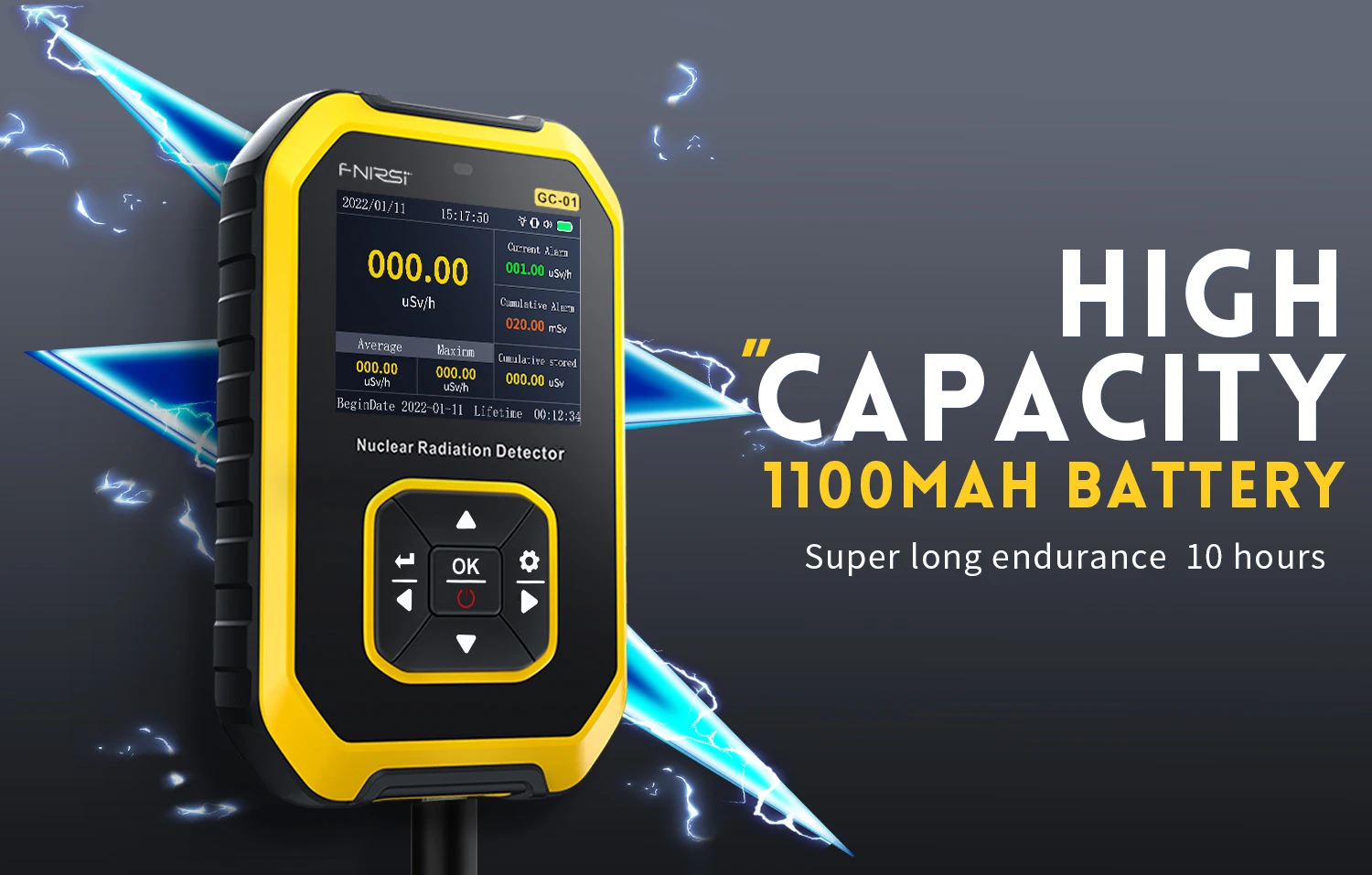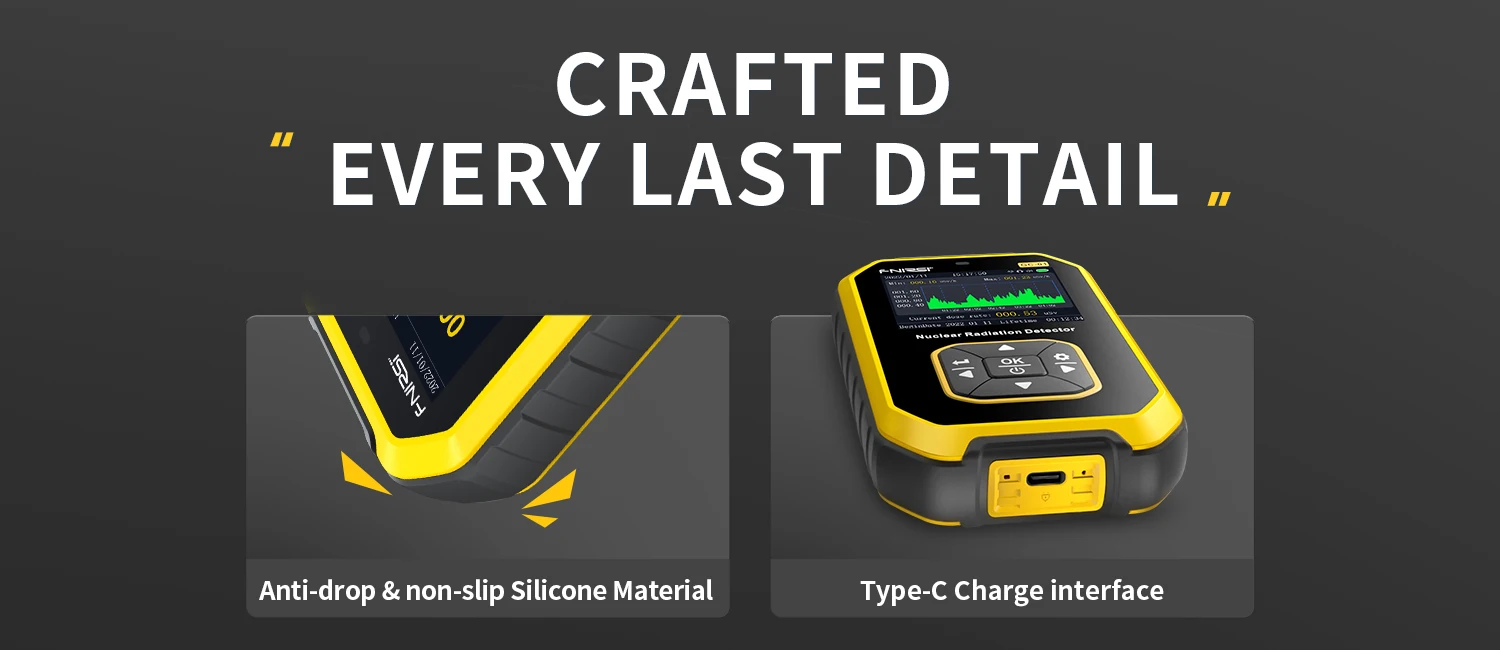No Products in the Cart
The GC-01 Geiger Counter by FNIRSI utilizes a Geiger-Muller counter, providing exceptionally precise measurements for accurate detection of ionizing radiation. Trust in its high precision to monitor your environment effectively.
Capable of detecting various forms of ionizing radiation, including beta particles, gamma rays, and x-rays, the GC-01 offers a thorough analysis of radiation intensity. Stay informed with comprehensive radiation detection capabilities.
Designed with versatility in mind, this Geiger Counter offers multiple probe options. Users can choose between a gas tube or a small chamber, allowing for flexible and adaptable radiation detection methods tailored to different needs.
When the voltage applied to the probe reaches a specific range, ionization in the tube generates a pair of ions, producing an electric pulse. This pulse is amplified and recorded by the connected electronic device, ensuring reliable ionization detection.
Enhance your safety and awareness with customizable alarm thresholds. Users can freely select the alarm threshold measurement rate, enabling personalized alerts based on specific radiation levels.
For detailed instructions and reference, the FNIRSI GC-01 Geiger Counter comes with a comprehensive product manual. It provides in-depth guidance on usage and functionalities, ensuring you get the most out of your radiation detector.
Equip yourself with the FNIRSI GC-01 Geiger Counter Nuclear Radiation Detector for reliable and precise radiation detection. Stay safe and informed with its comprehensive features and customizable options. FNIRSI GC-01 Product Manual
Yes, a Geiger counter can detect nuclear radiation. It's a handy device that measures ionizing radiation, including alpha, beta, and gamma rays. It helps identify and quantify radiation levels in an area or object.
Radiation levels are typically measured in microsieverts per hour (µSv/h). For everyday life, levels below 0.1 µSv/h are considered normal background radiation. Levels up to 1 µSv/h are generally safe for limited exposure, but anything higher should be investigated further.
Using a nuclear radiation detector, like a Geiger counter, is straightforward. Turn it on, let it calibrate if necessary, and then point it towards the area or object you want to measure. The device will give a reading of the radiation level, usually displayed in counts per minute (CPM) or microsieverts per hour (µSv/h).
Besides Geiger counters, other devices can detect nuclear radiation, such as scintillation counters, dosimeters, and ionization chambers. Each device has specific applications and sensitivity levels suited to different types of radiation and situations.
To test radiation levels at home, you can use a personal Geiger counter or radiation detector. These devices are user-friendly and provide immediate readings of the radiation in your environment.
Safe radiation levels vary, but the general guideline is that background radiation levels below 0.1 µSv/h are considered normal and safe. For occupational exposure, limits are higher, but the average person should avoid prolonged exposure to levels above 1 µSv/h.
Using a Geiger counter involves turning it on, ensuring it's calibrated, and then moving it slowly around the area or object you're testing. Read the display for the radiation level, and listen for the audible clicks that indicate detected radiation.
Testing for radiation without a Geiger counter is challenging. However, some smartphone apps claim to detect radiation using the phone’s camera, although these are not as reliable. For accurate readings, it’s best to use dedicated radiation detection equipment.
The detection range of a Geiger counter depends on the strength of the radiation source and the type of radiation. Generally, Geiger counters can detect gamma radiation from several meters away, while alpha and beta particles are detected at much closer ranges, usually within a few centimeters.
Common household items that emit small amounts of radiation include smoke detectors (which contain americium), some older luminous watches and clocks (with radium or tritium), and certain types of ceramics and granite countertops.
People buy Geiger counters for various reasons: to monitor environmental radiation levels, check for contamination in food or water, ensure safety in areas with known radiation risks, or simply out of curiosity and a desire to learn more about their surroundings.













